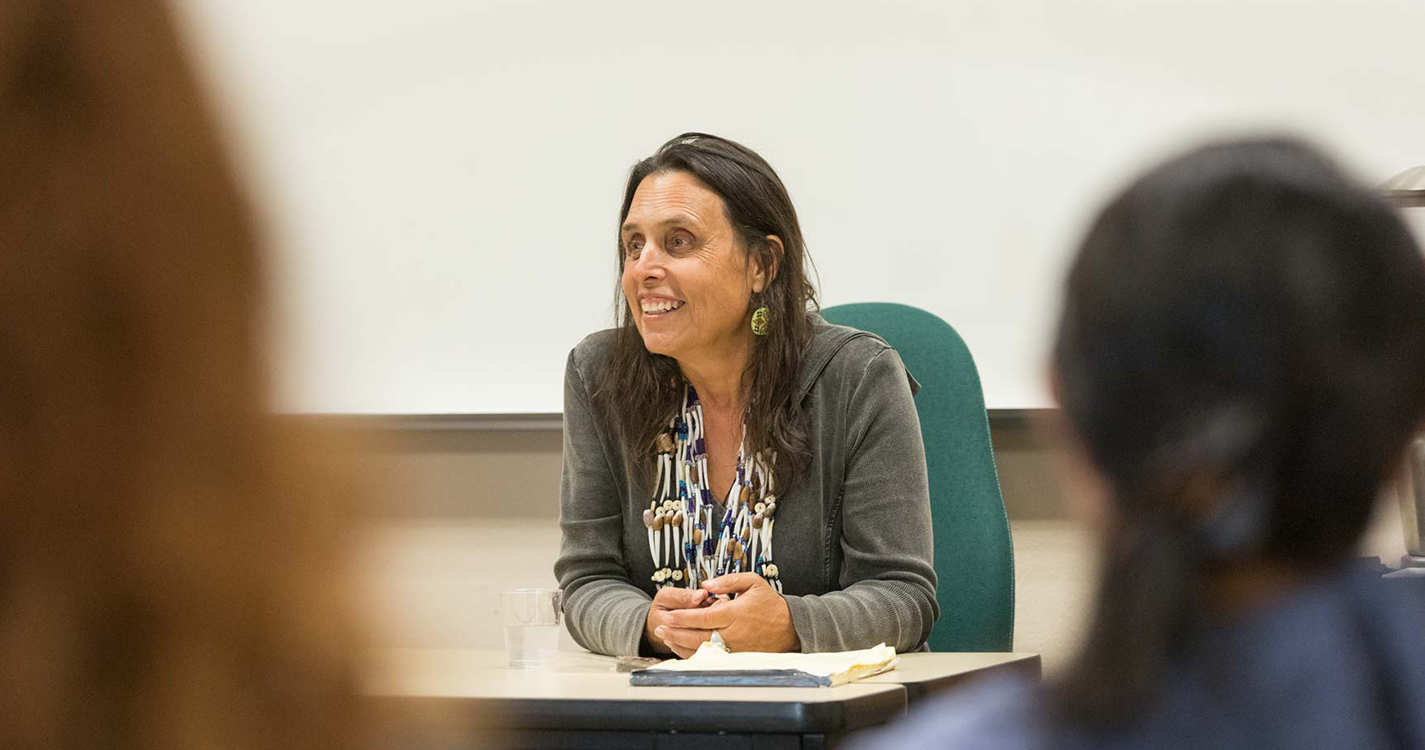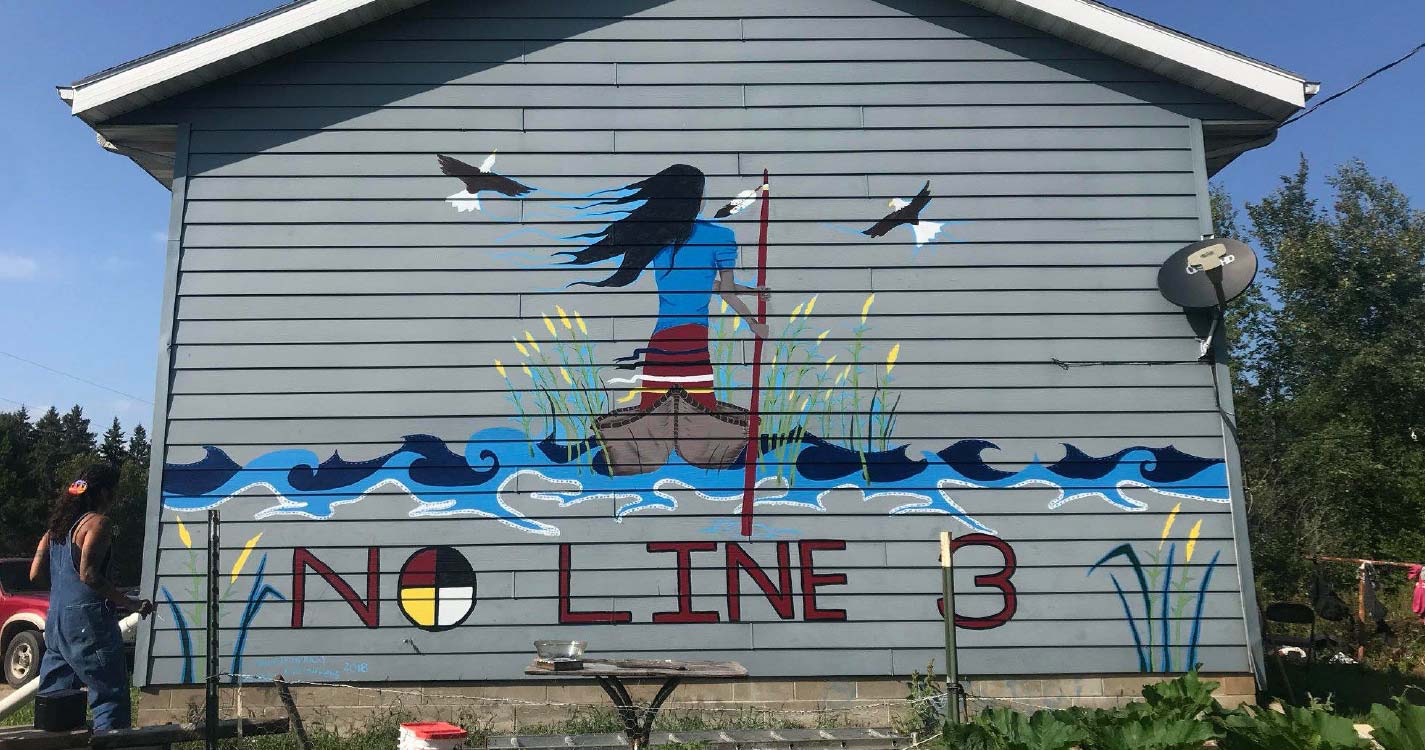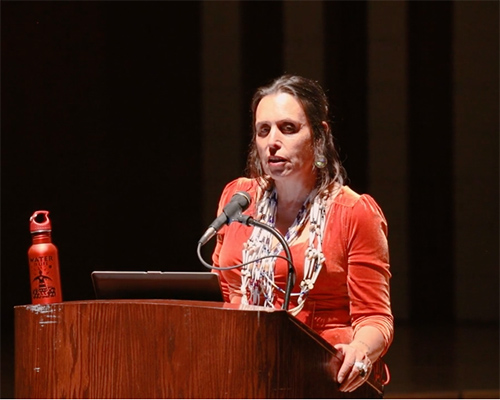Americans today watch bridges collapse, pipelines explode and liken wildfires to “Armageddon.”
At Willamette’s Hudson Hall last week, Winona LaDuke — an Anishinaabe author, activist and development economist — used these examples of human-made and natural catastrophes to illustrate a larger point: Americans have reached a moral crossroads.
Reciting an Anishinaabe prophecy, she told the audience that “one path is well-worn but is scorched, and the other path is not well-worn but is green.”
“The prophecy is not just something for the Anishinaabe people. I think that’s where we are in America,” she says. “The great North American society must make a choice … I’m going to do my part to keep the next bad storm from happening.”
In an Atkinson Lecture talk at times humorous and rallying, LaDuke presented a vivid slideshow to accompany a series of anecdotes — Anishinaabe language strewn throughout — about climate change, following the corn-growing traditions of her ancestors and what it’s like to be a “water protector” and “not a protester.”
LaDuke is the executive director of Honor the Earth, a nonprofit she co-founded with the Indigo Girls band that raises financial support for indigenous environmental justice. She’s won international recognition for her work on environmental issues and being an advocate for indigenous people. A documentary following her fight to block an Enbridge pipeline, “First Daughter and the Black Snake,” played at Willamette last month as part of its Indigenous Peoples’ Day celebration.
Previously a two-time Green Party vice presidential candidate, LaDuke at one point during the talk riffed on President Donald Trump’s “Make America Great Again” slogan, saying America was great when indigenous people were responsible for plant production and “tremendous agrobiodiversity” existed.
“America was great when there were 51 million buffalo, the single largest migratory herd in the world covering the northern Plains territory,” she said. “Today, there are 28 million cattle that live in the exact same territory, and those cattle take fossil fuels to keep them going.”
Widely known for her stance against pipelines, which companies frequently propose to run through tribal lands, LaDuke explained how her initial “outta sight, outta mind” attitude developed into one focused on informed actions and culminated in her arrest late August.
LaDuke, who lives on the White Earth reservation in northern Minnesota, gathered with nearly 100 others in Bemidji to stand against a replacement pipeline estimated to carry 760,000 barrels of oil per day through Minnesota, Canada and Wisconsin — as well as the wild rice lakes and land significant to the Chippewa tribe.
Jokingly, LaDuke said, “My suggestion is that if you’re going to get arrested, you should get arrested with a bunch of church people. I was with a bunch of Lutherans and the police didn’t want to arrest us at all.”
LaDuke also described her experiences in 2016 at the Standing Rock Indian Reservation in North Dakota. Hundreds of people traveled to the reservation to express dissent against construction of the Dakota Access Pipeline — proposed to run under a lake near the reservation — and violent clashes with local law enforcement emerged.
“Standing Rock to me is a ‘Selma moment’ for the environmental movement and the indigenous movement — a moment when you found your true self, you found the mettle where you had come from and you tested yourself,” she says. “You had to see if you were brave and courageous enough to face them.”
Comparing America’s constant consumption of resources to that of a junkie, she said the time has come to “admit our addictions and get on a treatment program” and find solutions that “don’t come from the people who created the problems in the first place.”
Quoting famed Native American leader Sitting Bull, she said, “Let us put our minds together to see what kind of future we can make for our children.”



